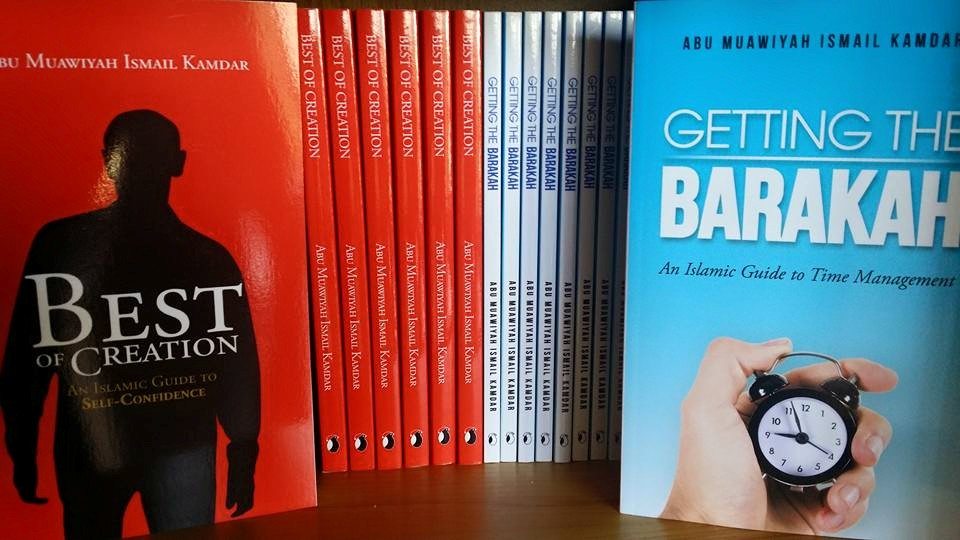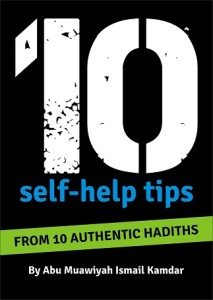Business
A warning about Fake Experts
What is an expert?
“An expert is an ordinary man away from home giving advice”
Oscar Wilde
The above statement was made in relation to fake experts, people who claim to be experts but if you were to actual inspect their home lives, you will find that they have no clue what they are talking about.
Why am I bringing up this topic? because there seems to be an influx of fake experts in the Muslim community and some don’t even realize what they are doing.
So what really is a fake expert?
A fake expert is someone who reads/listens to/watches something and then feels like he/she is an authority on the topic and qualified to teach it to others.
We see this happening with young people who read a book on Aqeedah then go around pretentiously acting like they are the experts on Aqeedah. Likewise with Fiqh and other Islamic sciences, the Shaykh Googles and Mufti Wikipedias of our generation are many.
Then you have the folk who claim they can teach you how to become millionaires or billionaires, while failing financially themselves. Instead of teaching based on experience, they are teaching based on something someone else experienced.
What’s the big deal with doing this?
There are several problems with claiming to be an expert in a field in which you are not, the primary of which is that it is deception and lying, both of which are prohibited and make doubtful the individual’s income earned from such claims.
Then there is the harm it causes to others. By teaching something you have no experience using, you can’t really know for sure that it will work, and often it doesn’t. Leading to the other person feeling betrayed by your claims of expertise.
On a business level, such claims hurt your personal brand in the long run because clients will eventual catch up that you don’t know what you are talking about, and will abandon you in droves. In short, its a Lose/Lose situation for all, yourself included.
How to recognize a fake expert?
I will give you one simple step for recognizing a fake expert: Find out the qualifications and experience of the individual you are taking knowledge from.
When it comes to Islamic knowledge, you want to make sure you are only taking knowledge from authentic and qualified scholars. Likewise, with worldly knowledge don’t just listen to anybody who claims to be an expert.
There is a huge difference between a best-selling author teaching you how to become a best-selling author, and a struggling author teaching you how to become a best-selling author. The former is far more likely to have something positive and beneficial to teach you.
The same applies to anybody, whether claim to be experts in finance, business, marketing, time management, or confidence-building. Check if they practice what they preach, if they are benefiting from it or not, and this alone will help save you from falling for con-artists and fakes.
Why I am very picky about what I write about?
I am very picky about what I write about. I get many requests to write books on a variety of topics, and I only choose those which I feel confident enough to write about based on my own experiences.
For example, I am often asked to write about parenting and I usually reply that I will write about parenting in ten years time when my kids have grown up and I have seen if how I raised my kids worked or not. Until then, it is too early for me to write about parenting as I am still a young parent making mistakes and growing.
Likewise, when I am asked to write Fiqh books, I shy away from it as I feel I still need years of study and research before I can consider myself an expert in that field, despite my qualifications in Islamic Studies.
However, I have written about Time Management because it is something I have been practicing and implementing for years, and so my writings are based on my experiences, not theory and readings.
Likewise, I wrote about Self-Confidence because I used to lack confidence and learned many tools to help myself grow into a more confident individual, and I wanted to share those tools, experiences and insights with those who are in the same situation I was in.
Finally, I had no intention to write about Homeschooling for many years because I do not consider myself an expert in homeschooling yet. Rather, I am still in the early years of being a homeschooling dad and still gaining experience.
However, I decided to write about the first year of homeschooling because it is something I successfully experienced last year, so I could write about it based on my experienced and not just theory.
The point I’m trying to make is that we should only write/speak/teach based on experience and applied knowledge, and should not claim expertise is things that we are still struggling with and learning ourselves. We should be humble enough to know our limits, yet confident enough to know our true areas of expertise.
This is why whenever I want to learn something new, I always look at the most successful people in that field, and learn from the, because it is through such people that you will gain the most beneficial knowledge in that field.
Wealth: A Test and A Gift
The Islamic Position on Wealth:
“You shall certainly be tested with your wealth and properties and in your own selves,” (Surah Al-Imran, 3:186)
Some of us look down upon the wealthy, and regard the pursuit of Halal wealth as evil. In doing so, we limit their own potential and get in the way of our own success. If you look at the Sahaba, many of them were wealthy businessmen and this did not take away from their piety at all. Classic examples of this include Abu Bakr, Umar, Uthman and Abdur Rahman Ibn Auf who were all wealthy businessmen and among the ten greatest companions (Ashara Mubasharrah).
In fact, through their Halal wealth they were able to do more good deeds than others by engaging in charity and humanitarian efforts that those with less wealth couldn’t do. The prophet (peace be upon h im) never condemned them or stopped them from doing business and getting richer. He just emphasized that the wealth should be Halal, spent on good things and should not consume the heart in a way that leads to the disobedience of Allah or the oppression of his creation.
im) never condemned them or stopped them from doing business and getting richer. He just emphasized that the wealth should be Halal, spent on good things and should not consume the heart in a way that leads to the disobedience of Allah or the oppression of his creation.
The following narration is evidence that the Prophet (peace be upon him) and his companions regarded Halal wealth as a good thing:
Abu Hurairah reported that the poor amongst the emigrants came to the Messenger of Allah (peace be upon him) and said, “The wealthy have obtained the highest ranks and the lasting bliss,” The Prophet (peace be upon him) said, “How is that?” They said, “They pray as we pray, and they observe fast as we observe fast, and they give charity but we do not give charity, and they set slaves free but we do not set slaves free,”
Upon hearing this, the Messenger of Allah (peace be upon him) said, “Shall I not teach you something by which you will catch up with those who have preceded you, and get ahead of those who come after you, only those who do as you do will excel you?” They said, “Yes, Oh Messenger of Allah.” He said, “Praise Allah, declare His Greatness, and Praise Him thirty-three times after every prayer,”
Abu Salih said that the poor amongst the emigrants returned to the Messenger of Allah (peace upon him) saying, “Our brothers, the wealthy have heard what we have done and they did the same,” So the Messenger of Allah (peace be upon him) said, “This is Allah’s blessing which He gives to whom He wishes.” (Saheeh Muslim 4:1239)
In this narration, it is clear that the Prophet (peace be upon him) and his companions viewed wealth as a blessing from Allah that can be used for great deeds, and they competed in doing such deeds. In fact, the poorer companions envied the wealthy companions, not for any negative reason, but because they wanted to do as much charity work as their wealthier brothers. This teaches us the Islamic position towards wealth, it is part of Allah’s provisions to us which can be used for good or evil. The wealth itself isn’t a problem, how we earn and spend it is what matters.
The Virtue of Earning Your Own Income
Hadith on virtues of earning
Regarding earning, the Prophet (peace be upon him) said:
“By Him in Whose Hand my life is, it is better for anyone of you to take a rope and cut the wood (from the forest) and carry it over his back and sell it (as a means of earning his living) rather than to ask a person for something and that person may give him or not.”(Saheeh Bukhari)
There are many ways to earn money in this world. Some are Halal and some are Haram. As Muslims, it is a given that we should avoid the prohibited means of earning wealth, and stick to that which is permissible.
Yet even within the permitted means of increasing wealth, some forms are greater than others. While it may be true that you can increase your halal wealth through inheriting, receiving gifts, asking for funding and relying on someone else for support, this Hadith emphasizes that the purest and best way to increase wealth is to earn it yourself through hard work.
This Hadith is usually quoted to support the prohibition of begging but it has other dimensions as well. The concept of earning one’s own wealth is connected to self-confidence, integrity and independence. Some people sit around dreaming of a day when they will inherit a lot of money or someone will give them what they desire as a gift.
A noble person will work hard to earn that wealth, and purchase what he desires. He will not wait around hoping for someone else to fulfil his needs or the needs of his family. This is really what Self-Help is all about. If you want something, do not sit around waiting for help. Work hard and help yourself to get it.
The end result of this is that you will feel stronger, more confident, nobler, and more fulfilled, as you worked hard and earned whatever it was that you desired.
This is an extract from my free e-book “10 Self-Help Tips from 10 Authentic Hadiths“. Subscribe to Islamic Self Help to get your copy.




